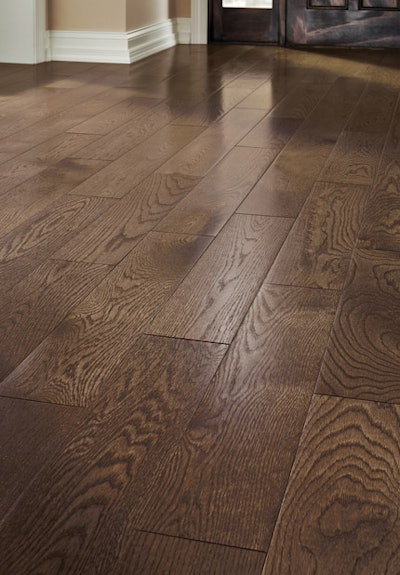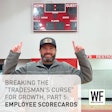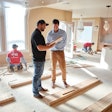
Those who know me know I do not compromise on principle. I did not at the Naval Academy, I did not in the Marine Corps and I do not here in my own business at Carpet One Floor Home in Panama City, Fla. I wasn’t always so resolute, though. As flooring contractors and retailers, we are under constant pressure to do things we know we shouldn’t do, and it isn’t always easy to say no. Sometimes a certain job or customer will change how you do business forever, though.
One customer who had that impact on me was one I happened to run into quite a while after his home was done. He proceeded to relate to me how my company had “fixed” a hardwood problem he said was caused by our company. It was a wood flooring job on his new home; we worked with his contractor on a regular basis, and that contractor never allowed us to acclimate wood. Because of that, we had a waiver on file with his signature.
As the customer told me about it, he described the moisture issues that had happened after the installation. We had eventually replaced the wood flooring with tile. He was pleased with that, and he had no idea his builder had refused acclimation. He just thought it was a faulty installation or product.
That was the moment I decided never to bend again. When I got back to the store, I told the salesperson for that builder that we didn’t need to install wood for him anymore, and that the waiver wasn’t good enough. I felt it was disingenuous for us to knowingly install incorrectly without informing the customer of long-term consequences, even though the builder required it. I felt that we were helping him bait and switch.
Since then, I cannot tell you the number of customers we have lost because it was not possible to do their job the right way. (It is one reason why we do not deal much with builders anymore—when it comes to quality, so many contractors want to cut corners and sacrifice their customers’ interests at the expense of my reputation.) Recently, I received some positive reinforcement for the way we do business now.
A customer of one of my competitors came to me and asked that I inspect his hardwood floor (I am NWFACP-certified to inspect wood floors). Although I ultimately refused to do the inspection (I did not want to be accused of being a troublemaker), I listened to him describe the issue. Based on my own experience with the types of problems he described, the contractor, along with the flooring retailer, was likely culpable due to failure to follow simple industry guidelines. As the customer told me about the home inspections that had already been done, the information pointed to the crawl space, lack of plastic and ventilation, and improper subfloor preparation and/or acclimation. The retailer had tried to fix it twice and failed, so the customer retained a lawyer. If neither the contractor nor the retailer do the right thing, it will certainly end up in court. It was preventable.
RELATED: How Many Wood Floor 'Failures' Start Before the Sale
This reminded me of a similar job I had two years ago while working for a contractor and an ASID designer. I would not install the job the way the contractor and designer wanted, but I gave them options. I made a sincere effort to educate them, and I even took them to a previous customer’s home where I resolved the same issue with an alternative solution. Both were livid that I wouldn’t do what they demanded. Regardless of their emotional reaction, I stood firmly on my professional experience—a stance I expected a general contractor and professionally accredited designer to support. They did not.
Bottom line: They got angry and ugly. They weren’t the ones putting their professional reputations on the line, and if it failed, you know they would have forced me to replace it. In the end, they begrudgingly told me to do it my way because it was the only feasible alternative. I completed the installation, and no issues arose. (My thanks for the job, done correctly, was that neither the contractor, nor the ASID designer, have done business with me again. But, then again, I will not work with them, either.)
I believe customers pay for a service, and when they pay me to do the service, they have a reasonable expectation that I will perform the service to industry standards. Be professional. Do the job you were paid to do. Tell the truth. Accept responsibility for your actions and for those of the people in your service. Is this too much to ask?

































